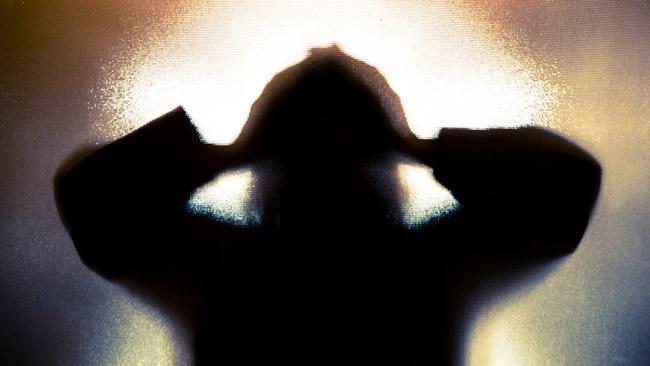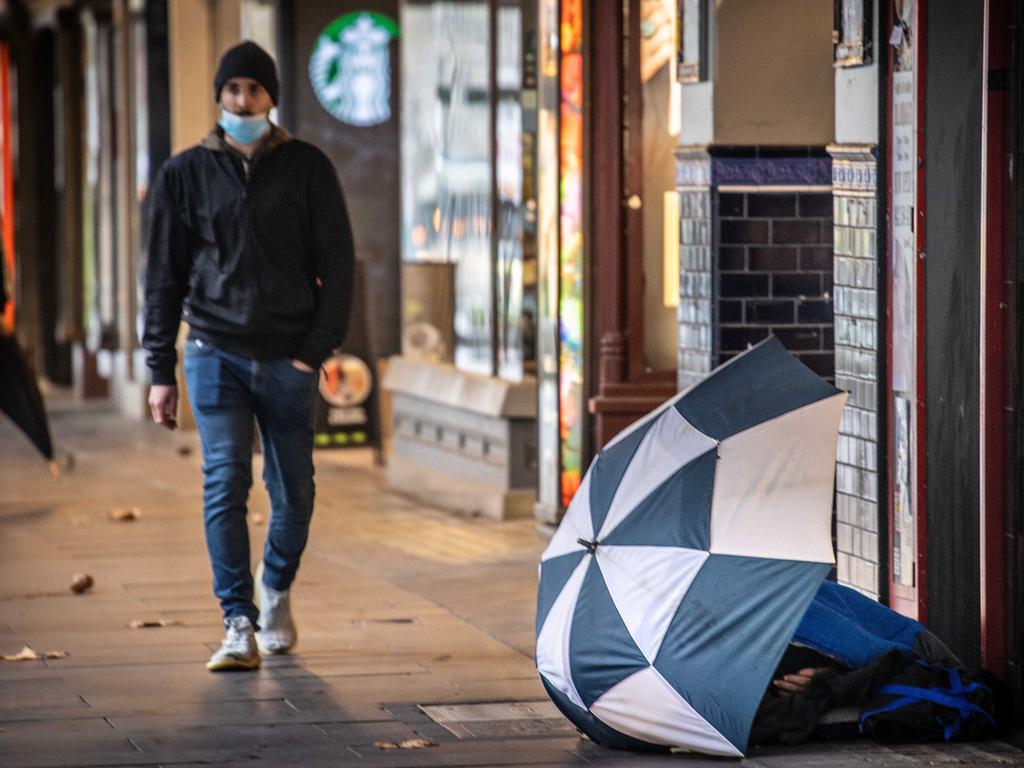
It turns out that it’s not a grammatical monstrosity, with the Oxford Dictionary allowing it as a noun that describes “the fact of being overwhelmed” – although it concedes it is rarely used.
The internet reveals bloggers and others have written about “the overwhelm” in recent years, but it surfaces now as a perfect word to describe the sense of a giant wave, not quite a tsunami, that knocks you off your feet, dumps you in the surf, and leaves you struggling to get upright.
Over and over again.
The overwhelm is not exactly depression or burnout; it’s not anger or frustration, or even boredom. It can hit those working from home as much as those going to a workplace, and it is surely unavoidable for those charged with running essential businesses such as food processing or aged care or aviation.
The overwhelm for remote workers can be about back-to-back Zoom meetings and too much work because colleagues have been sacked or because when you would like a bit of direction you have no idea if your manager is in Cairns or Camberwell and wonder if they will ever answer your text.
And for many of us, it’s about the fact that while every conversation is about Covid, there is somehow nothing left to say.
All of the above contribute, but the overwhelm has more to do, too, with the uncertainty that has become a certain part of our lives.
Every week may feel repetitive when you can’t break it up with restaurant meals, visits to friends, trips to the gym, picnics, or in-person shopping therapy, but the lack of certainty about when it will end is destabilising and, well, overwhelming.
We may not have realised how much our sense of self depends on planning next month or year or decade, but we know now how flat we feel when we can’t even book a week at the coast.
More than 18 months in, we know many are much worse off than us, losing jobs and businesses, losing years of contact with children and grandchildren, losing loved ones.
Yet that knowledge adds to the fear we have for others as well as ourselves. We watch as the wind is knocked out of our collective sails.
Getting out from under the overwhelm, we are told, involves individual acts of self-discipline, or organisation, or meditation. Remote workers are urged to click the wellness links in the company emails to access advice and assistance. They are urged to join resilience workshops online or dial into drinks online on Friday nights.
That might have worked last year but many now realise it’s not really down to them to get out of this one and they miss the leadership needed in cohesive organisations and societies.
Our leaders have not disappeared entirely, but it’s hard to lead when you don’t really know what to tell your followers.
A leadership researcher at the University of NSW’s Business School, Professor Karin Sanders, says good leadership requires consistency but our political leaders have been delivering different messages across the country.
Politicians are everywhere on our television screens but leaders of many other organisations seem to be invisible, she suggests, relying on email to tell us that they are on our side.
The exception, of course, are those running businesses in lockdown – especially small businesses – who show outstanding operational leadership as they struggle to keep their companies going and staff in employment.
Some people say the pandemic is our version of a world war and we should look back to identify what got our parents and grandparents through those years.
But there is no blueprint here.
As Sanders says: “In a war, you need task-oriented leaders – we are moving out, get your gun ready, start shooting. It’s not about ‘how are you doing and I heard that your wife is unwell’.”
At a national level, today’s “war” task is to get people vaccinated. In the past few weeks, leaders in business and politics have asked us, metaphorically speaking, to pick up our guns and go get the shot.
That’s good because vaccination is probably one of the few levers to help reduce the overwhelm, but implementation has been so messy in terms of compulsion and supply that the rhetoric may not be much help.
The fact of being overwhelmed may prove as hard to suppress as the coronavirus itself.








I had not heard of the overwhelm until a few weeks ago when in the space of a couple of days, two interviewees used it to explain their lives in the time of Covid-19.